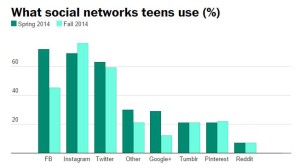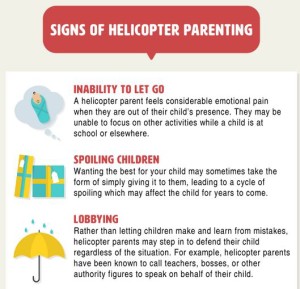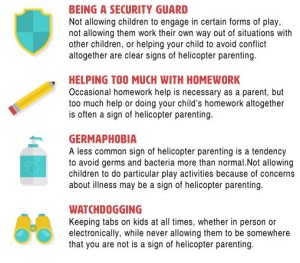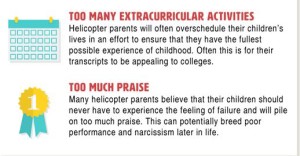Almost everyday, it seems, there’s a new story about how “Millennials are leaving the church.” But there’s a problem with these trend pieces: They aren’t true. American Christianity still has plenty of Millennials — they’re just not necessarily in white churches. Continue reading
Category Archives: For Churches
You (Almost) Lost Me: Why This Young Christian Is Somehow Not Leaving Church…And Rethinking Faith
 What pains me is the defensive reactions of (typically older) generations that have said: “What are we going to do about those darn millennials?” That have talked at us more than talked with us.
What pains me is the defensive reactions of (typically older) generations that have said: “What are we going to do about those darn millennials?” That have talked at us more than talked with us.
Why teens are leaving Facebook: “It’s Meaningless”
I found this article on the Washington Post, and I wanted to share some highlights with my readers. Here is the full article.
Here are some of my favorite lines from the article, and my response.
- Teens are leaving Facebook in droves for new friends like Instagram, Snapchat and Twitter — at an estimated rate of up to a million a year. This is not new news, but the decline started almost three years ago. Seeing the decline, Facebook bought Instagram in 2012 for less than $1 Billion.
- With widespread parental supervision on the service, many teenagers prefer the anonymity of Whisper, the iPhone era’s version of PostSecret. Unfortunately, many teens and adults believe that social media is temporary and private. However, anyone can instantly take a screen shot and turn that pic or joke that you thought would go away into a permanent regret.
- “I feel like friend is becoming very vague,” he argued. “It’s like the word love… You say love to a lot of people and things you don’t actually love. It’s more of a compliment now. I know you and I’ll talk to you. It’s like saying, ‘We can converse.’ It’s kind of like being polite.” This young man explains how social media has changed the concept of friendship in our world. The word friend has been water-downed to include more people, yet less intimacy.
- For Eric, adapting to a new type of social media is like learning a new language — a feat studies have shown is easier for young people than it is adults. While I completely agree with Eric, I think that those who believe that adults will not follow their children are underestimating the power of parental curiosity.
- Cnet’s Jennifer Van Grove adds that apps like Snapchat are the “opposite of Facebook: simple, seemingly secret, and fun.” Van Grove writes, “Around schools, kids treat these apps like pot, enjoyed in low-lit corners, and all for the undeniable pleasure and temporary fulfillment of feeling cool.” I believe that the future of social media will promote social exclusivity and practicality uses.
Dr. G. David Boyd is the Founder and Managing Director of EA Resources.
Why Aren’t Black Millennials Leaving the Church?

© 2008 Raphaël Labbé, Flickr | CC-BY-SA | via Wylio
It is important in our research about Millennials to not make generalizations about the generation because broad stereotypes rarely hold up. Millennials are extremely diverse. Here is an article about one subset of Millennials who are not exiting the church, but continue to remain.
If you keep up with Christian news and blogs at all you know there has been a lot of talk about why Millennials are leaving the church.
It is a hot topic for Christian books and speakers, and for good reason. People are trying to understand why Millennials are leaving, if we can get them back and if the problem is with the generation or with the message or presentation of the Church. Continue reading
Why are Today’s College Students So Emotionally Fragile?
T he college years have traditionally been a time for young people to be challenged by new ideas, learn to think critically, and assume greater responsibility for their lives, as they assume their roles as adult citizens. Unfortunately, the past few years have witnessed high levels of emotional dependency, anxiety, and depression among American college students. Continue reading
he college years have traditionally been a time for young people to be challenged by new ideas, learn to think critically, and assume greater responsibility for their lives, as they assume their roles as adult citizens. Unfortunately, the past few years have witnessed high levels of emotional dependency, anxiety, and depression among American college students. Continue reading
3 Ways to Not Talk to Your Child about Sex – Guest Post
Messages about sex fill our society, and many of the messages are not healthy. In our sex-saturated society it is crucial that we speak to our children about their sexuality.
As fathers, it can be intimidating, but don’t worry…
- you don’t have to cover it all at once (but it should be the first of many conversations).
- you don’t have to know everything about it.
- you don’t have to be smooth and polished.
However, don’t wait until you feel ready or you may never do it. Here is an article that I recently found that provides parents some pointers when talking to your children about sex.
In my conversations with emerging adults and teens around the country, one theme continually roars up to the surface…no one is talking with Christians about sexuality. I know that kind of statement colors way too many people with the same drab crayon, but my own research, and that of a lot of other good people studying the sexuality among Christian folks, makes it pretty clear that the exceptions are few – especially in the mainstream evangelical world.
Read the remainder of the article HERE!

Picture Source: http://adammearse.com
Adam Mearse is a pastor and blogger at www.AdamMearse.com.
The “Millennial Exodus” – Is the Future of the Church at Stake?
The Pew Research released a new study confirming that Millennials are exiting the church. If you missed the articles, you can read more HERE and HERE.
I have often heard the expression, “The Church is one generation from extinction” as a reason why youth/children’s ministry is important for the church.
I hate that statement – because it is not true.
The church is not in danger of extinction. Do not fret over the future of HIS church, but have faith in its Owner and Builder and the One who says, “I will always have remnant unto myself.” (Romans 11:3-5) God’s church will stand forever, and even “the gates of hell will not prevail against it.” (Matthew 16:18)

© 2015 Paxson Woelber, Flickr | CC-BY | via Wylio
While the future of the church is NOT at stake; however, the future church may look different.
In the Old Testament, God’s people experienced many times of transition. In Ezra 3, the Jews having been released from Babylonian captivity are working to rebuild the temple. It was a monumental time of celebration; however, we also read:
Yet many of the priests and Levites and heads of fathers’ households, the old men who had seen the first temple, wept with a loud voice when the foundation of this house was laid before their eyes.
Those who had seen the beauty of the first temple were sad because this new temple did not measure up. The passage describes how that within the crowd – some wept while others rejoiced.
As I read Ezra 3, I ask a few questions.
- Did the change in the temple’s foundation display God’s abandonment of His people?
- Did the change in the temple’s foundation reveal that God’s glory was fading?
- Did the change in the temple’s foundation herald that God’s working would be lessened?
I believe that the answer to all three questions is NO. So, what was the cause of their tears?
The future of the church is not at stake; however,

© 2014 Hoshi_sae, Flickr | CC-BY | via Wylio
There will be tears – for those who cling to past forms and formulas of religious institutions. Those who sit in leadership will weep as they see ‘their power’ slipping away.
Tears will fall for the loss of their “majority”.
Tears will fall for the loss of big church and big budgets.
There are tears for those who live in days gone by still looking for God to move as He did in days past. There will be tears.
Tears will fall for those who can only see what was, and assume that what was is what should be.
God’s Spirit is not confined to the forms and formulas of today’s world. God’s work is often found outside religious institutions (If in doubt, check the New Testament.). God’s voice still speaks to those who listen, and has not lost its power.
His spirit is powerful, and working in lives. His breath can shake the mountains. His word can break stone and melt iron. His will can move the hardest of hearts and stir the slumber to action. So may we cling to the power of the word. May we read the word. May we bring his word to those in power.
Lord, may I bring introduce the power of your word to a new generation. And sit back and watch in wonder and amazement as you work in new ways, in new forms, and to a people that You have reserved unto Yourself.
May I not cry at the laying of a new foundation. May I rejoice. May I save my tears. May my hope rest in God alone.
Sola de Gloria.
 Dr. G. David Boyd is the Founder and Managing Director of EA Resources, a non-profit that focuses on providing resources to churches and parents who love emerging adults.
Dr. G. David Boyd is the Founder and Managing Director of EA Resources, a non-profit that focuses on providing resources to churches and parents who love emerging adults.
Signs of Helicopter Parenting – A Visual Guide by Hannah Marks
I recently came across a visual guide that describes Helicopter Parenting and its affects upon emerging adults. While many adults want to give their children autonomy, not all parents recognize when they are too involved in the lives of their children.
Hannah Marks is the Outreach Manager of the Yellowbrick Program. You can access the full article at www.yellowbrickprogram.com.
Related Articles:
Why I Stuck with the Church – The Millennial Exodus
 The Millennial Exodus is a term that I use to mark articles dealing with the declining rate of Millennials who attend the church in the United States. EA Resources is committed to provide resources to churches and parents who want to encourage Millennials in their spiritual development.
The Millennial Exodus is a term that I use to mark articles dealing with the declining rate of Millennials who attend the church in the United States. EA Resources is committed to provide resources to churches and parents who want to encourage Millennials in their spiritual development.
As part of our mission, we purchase written/video work of Millennials who express their stories about “Why I left the Church” or “Why I Stuck with the Church.” If you would like to submit your work for purchase, please contact me gdavid@earesources.org.
Here is the story of a Millennial, and why she has stuck with the church.
I have experienced hypocrisy within the church. It was anything, but fun. In spite of its faults, I have chosen to continue with the church. The church has many areas of improvement to focus on, but I must remember that it is an institution. All institutions are ran by imperfect people are therefore – imperfect. The main reason I stuck with the church lies mostly in my choice to stick with my faith. Although I was supported in my faith by various people throughout my life, I made my faith my own.
I was never forced to go to church. I didn’t grow up with a Christian father, and my mother didn’t truly give her life to Christ until I was in high school. Although surrounded by small group leaders and mentors, my belief in God was never based on anyone else’s faith. It was always mine. However, I know that many other young adults struggle to separate their faith from their parents. They wonder if they would still hold to Christianity if they had been raised in a home that taught a different religion.
My plea to the Church. If you want us to stay… Love us.
As Millennials, we will not be forced into Christianity, or scared there by a fear of hell. These methods do not display Christ’s grace and love. I beg you – connect with us! The Bible teaches that the gathering of Christians is vital for a strong faith. We need to see why you believe in God. We need to see your passion.
Give us a reason to see past the imperfections of the church.
Let us see the heart of the church.
 I’m Junior at Bethel University studying Environmental Science in hopes of doing Environmental Restoration with missions. I love the outdoors, being Minnesotan, and everything about camp– including flannels, chacos, and sharing the gospel. I have my own blog on wordpress if you want to read more by me– amandanoellebabcockblog.wordpress.com
I’m Junior at Bethel University studying Environmental Science in hopes of doing Environmental Restoration with missions. I love the outdoors, being Minnesotan, and everything about camp– including flannels, chacos, and sharing the gospel. I have my own blog on wordpress if you want to read more by me– amandanoellebabcockblog.wordpress.com
Millennials move towards Digital News – and they are willing to Pay for it.
NEW YORK — In a world flush with free information, some young people are still willing to shell out for news they read.

© 2013 Esther Vargas, Flickr | CC-BY-SA | via Wylio
A recent poll shows that 40 percent of U.S. adults ages 18-34 pay for at least some of the news they read, whether it’s a print newspaper, a digital news app or an e-mail newsletter. Another 13 percent don’t pay themselves but rely on someone else’s subscription, according to the survey by Media Insight Project, a collaboration of the American Press Institute and the Associated Press–NORC Center for Public Affairs Research. Older Millennials are more likely than younger ones to personally pay for news.
Here are some points to consider:
- “The proliferation of free news online and new ways for advertisers to reach people has besieged publishers of newspapers and magazines.”
- “Some popular news sites, particularly newer online-only outlets like Huffington Post and BuzzFeed, remain free to all.”
- “Millennials have shown that they are willing to engage in content that interests them,” Herndon said (a professor of journalism).
What does this mean for the church?
- Brand is often more important than price. Millennials who are willing to pay money for news know how to obtain this same news for free from other sources. These Millennials are interested in a specific perspective or “brand” of news.
- Many churches spend resources on their on-line presence without examining the results of that work. Does your church know who is utilizing your electronic media? Many churches have gone with current technologies, but the content does interest Millennials (for various reasons).
- I believe their willingness to pay for digital news is driven by their value of conservation of natural resources and their technology-driven lifestyle. In the church world, the paper bulletin still reigns, but even its days may be coming to an end.
Dr. G. David Boyd is the Founder and Managing Director of EA Resources.








